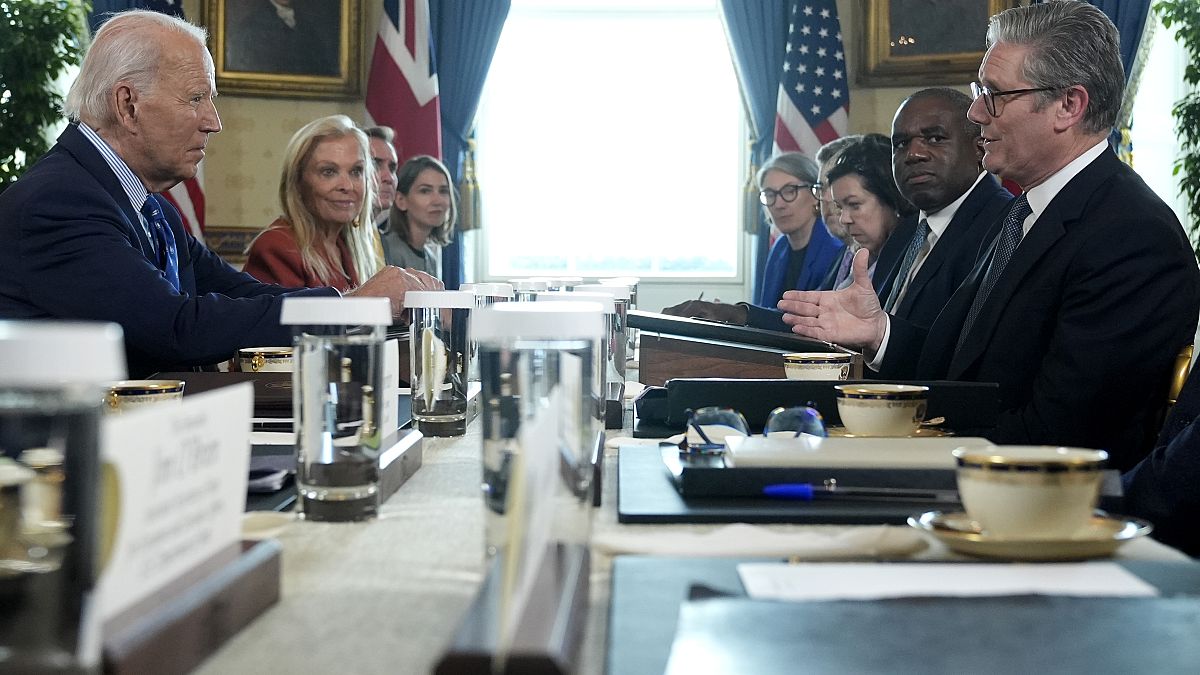US President Joe Biden and Britain’s Prime Minister Keir Starmer recently met to discuss the ongoing conflict in Ukraine and the possibility of allowing Ukraine to use British-made Storm Shadow missiles to strike targets deeper inside Russia. Despite a recent threat from Russian leader Vladimir Putin warning of war with the West if this were to happen, both Biden and Starmer did not mention the missiles in their meeting. Biden reaffirmed the United States’ commitment to supporting Ukraine as a defense against Russia’s aggression, while Starmer emphasized the importance of supporting Ukraine in its fight for freedom.
The possible use of Storm Shadow missiles by Ukraine has been a point of contention, with the US proceeding cautiously in granting earlier requests for advanced tanks, missiles, and F-16 fighter jets. The decision to allow Ukraine to use these missiles reportedly came from discussions between the US and UK behind closed doors. Concerns over potential Russian escalation have led to a careful approach in arming Ukraine. Despite warnings from Moscow that NATO would be considered a direct aggressor if Ukraine were allowed to strike targets in Russia, Ukrainian President Volodymyr Zelenskyy has argued that such permission is crucial in shifting the balance of power in the conflict.
In response to Putin’s threats and warnings, Zelenskyy has maintained that Ukraine needs approval to strike military targets in Russia in order to defend itself. He drew parallels to Western alliances shooting down missiles and drones in the Middle East, questioning why similar actions could not be taken to protect Ukraine. Putin’s warnings and threats have raised tensions in the region, with Russian media suggesting that the Russian leader has drawn a “red line,” indicating his firm stance on the issue. The US and UK’s decision to allow Ukraine to use the Storm Shadow missiles has the potential to escalate the conflict between Ukraine and Russia significantly.
Despite the potential risks and consequences involved in allowing Ukraine to strike targets in Russia, there is growing support for providing Ukraine with the necessary resources to defend itself against Russian aggression. The conflict in Ukraine has been ongoing for years, with Russian intervention and support for separatist movements in the eastern part of the country. The US and its allies have been vocal in their support for Ukraine’s sovereignty and territorial integrity, calling for a diplomatic solution to the conflict.
As tensions continue to rise and threats of war loom over Ukraine, the international community must navigate the delicate balance between supporting Ukraine’s right to defend itself and avoiding actions that could lead to further escalation. The decisions made by leaders like Biden and Starmer will have far-reaching consequences for the conflict in Ukraine and the broader geopolitical landscape. It remains to be seen how the situation will unfold and whether diplomatic efforts can prevent a full-scale conflict in the region.










